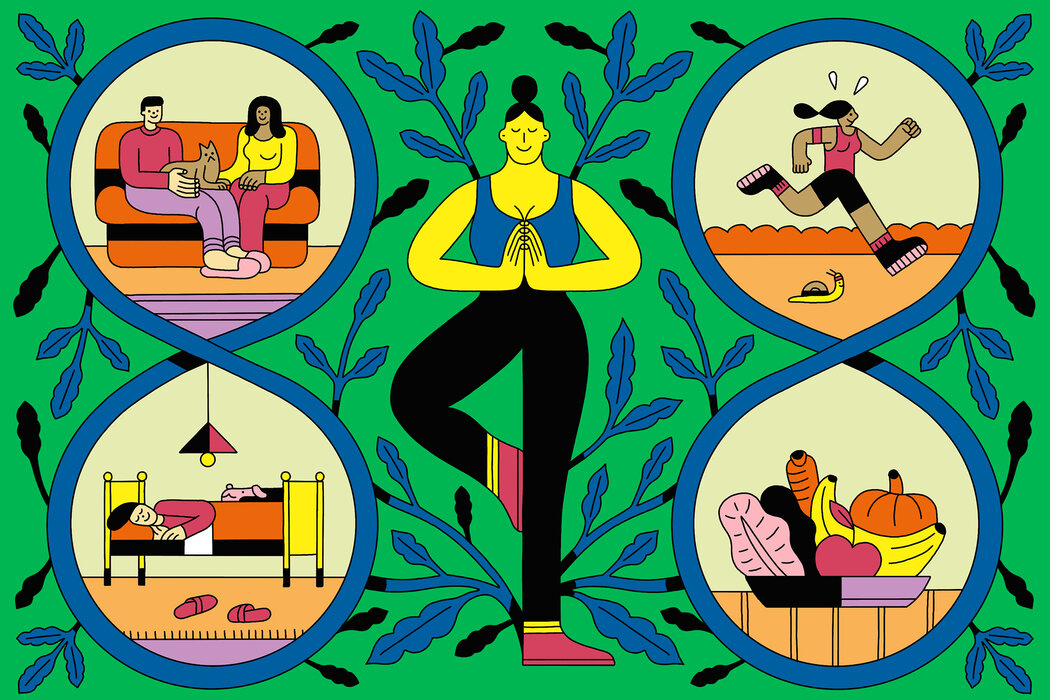For thousands of years, humans have been searching for the secret to immortality. For some today, that exploration includes sleeping in a hyperbaric oxygen chamber, experimenting with cryotherapy, or irradiating themselves with infrared light.
Most experts on aging are skeptical that these approaches will extend the upper limit of the human lifespan. But they believe that with some simple actions, many people can live healthier, longer lives and remain in good physical and mental shape into their 80s, 90s, and even 100s. These interventions are not as exotic as transfusing young people’s blood.
“People are looking for a magic pill,” said Dr. Luigi Ferrucci, scientific director of the National Institute on Aging, “and the magic pill is here.”
Here are 7 tips from geriatricians on how to extend your life.
1. Do More Exercise.
The first thing experts recommend is to stay physically active. Because study after study shows that exercise can reduce the risk of premature death.
Physical activity keeps the heart and circulatory system healthy and prevents many chronic diseases that affect the mind and body. It also strengthens muscles, thereby reducing the risk of falls in older adults.
Dr. Anna Chang, a professor of medicine at the University of California, San Francisco, who specializes in geriatrics, said: “If we spend some time in adulthood building muscle, building strength, improving balance, and improving cardiovascular endurance, then as the body As you get older, you have a stronger foundation for whatever the future holds.”
The best exercise is any activity you enjoy doing and can stick with. You don’t need to do much exercise, either—the American Heart Association recommends 150 minutes of moderate-intensity exercise per week, which means walking for more than 20 minutes a day is beneficial.
2. Eat More Fruits and Vegetables.
Some experts say maintaining a healthy weight is important for longevity, but John Rowe, a professor of health policy and aging at Columbia University, believes that’s less of an issue, especially as people age. “I’m always more worried about patients who are losing weight than patients who are gaining weight,” Rowe said.
3. Get Enough Sleep.
Sleep is sometimes overlooked, but it plays an important role in healthy aging. Research has found that the average number of hours a person sleeps per night is associated with the risk of death from any cause and that consistently getting high-quality sleep can extend life. Sleep appears to be especially important for brain health: A 2021 study found that people who get less than five hours of sleep a night double their risk of developing dementia.
“As we age, people need more sleep, not less,” said Dr. Alison Moore, professor of medicine and director of gerontology, gerontology, and palliative care at the University of California, San Diego. She also said that it is generally recommended to sleep 7 to 9 hours a day.
4. Don’t Smoke or Drink Alcohol.
Smoking increases the risk of various life-threatening diseases. “There is no dose of cigarettes that is good for you,” Luo said.
We are also beginning to understand the dangers of excessive drinking. Drinking more than one drink a day for women and more than two drinks a day for men — and possibly less — increases the risk of heart disease, atrial fibrillation, liver disease, and seven types of cancer.
5. Control Chronic Disease.
Nearly half of U.S. adults have high blood pressure, 40 percent have high cholesterol, and more than one-third have prediabetes. All of the health behaviors mentioned above can help control these conditions and prevent them from developing into more serious illnesses, but sometimes lifestyle interventions are not enough. Therefore, experts say it’s crucial to follow your doctor’s instructions and keep the condition under control.
“Taking medicine is not fun, and measuring blood pressure and blood sugar is not fun either,” said Anna Zhang. “But if we optimize all of these as a whole, they will help us live longer, healthier and better lives.”
6. Pay Attention to Interpersonal Relationships.
Mental health often takes a backseat to physical health, but Anna Zhang says it’s just as important. “Isolation and loneliness are as harmful to our health as smoking,” she said, adding that the condition puts us at “a higher risk of dementia, heart disease and stroke.”
Relationships are the key to not only a healthy life but also a happy life. According to the Harvard Study of Adult Development, strong relationships are the greatest predictor of happiness.
Rowe tells the medical students he teaches that one of the best indicators of how well an elderly patient will be over six months is to ask him “How many friends or family have he seen in the last week.”
7. Cultivate a Positive Attitude.
Even positive thoughts can help you live longer. Several studies have found that optimism is associated with a lower risk of heart disease and that people who score high on tests of optimism live 5 to 15 percent longer than those who are pessimistic. This may be because optimists tend to have healthier habits and have lower rates of certain chronic diseases, but even after accounting for these factors, research shows that people who think positively still live longer.
If you had to choose just one healthy way to live longer, Moore said, it would be to “do some physical activity.” “If that’s not possible, focus on staying positive.”




